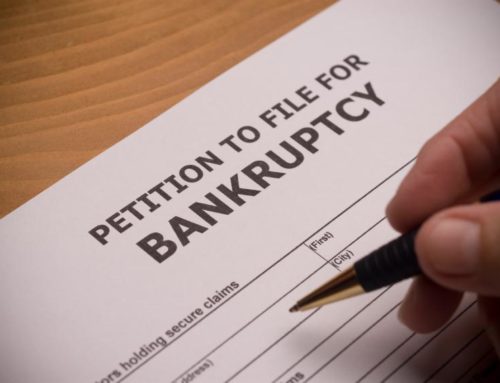Know Your Rights: West Virginia’s Debt Collection Time Limits
Ever wondered if there’s a deadline for creditors to collect a debt in West Virginia? The concept you’re looking for is the WV statute of limitations on debt. This law dictates the specific timeframe a creditor has to sue you to recover money owed.
Quick Summary:
- Statute of Limitations: Just like in other areas, debt collection also has its own statute of limitations that one needs to meet. The time limit to sue for debt collection varies depending on the type of debt. It’s 5 years for open accounts (credit cards) and oral agreements, 6 years for promissory notes, and 10 years for written contracts.
- Protections for Debtors: West Virginia has a law called The Fair Debt Collection Practices Act and the Fair Credit Reporting Act which protects debtors from unfair collection practices. These mirror federal laws and allow for up to $1,000 in damages per violation.
- Debt Collection Practices: Just because you owe money doesn’t give others the right to harass and terrorize you over your debts. There are specific rules for how debt collectors can contact you. Harassment and threats are illegal.
- Debt Negotiation and Settlement: Consider an attorney for debt negotiation and settlement. They can stop harassing contacts, assess your situation, and create the best settlement offer for you.
What is the Statute of Limitations in WV For Debt Collection?
Living in West Virginia and wondering how long debt collectors have to come after you for money? The answer lies in something called the statute of limitations, which sets a deadline for lawsuits.
This deadline depends on the type of debt, such as credit cards (5 years) or written contracts (10 years).
The statute of limitations for each is as follows:
- Open Accounts: 5 years
- Written Contracts: 10 years
- Promissory Notes: 6 years
- Oral Agreements: 5 years
If you have debts, it is important to keep the WV statute of limitations in mind to avoid complications in your already complex situation. Enlist the help of a bankruptcy attorney to walk you through the process.
What Happens When I Miss the Debt Deadline?
Missing the statute of limitations doesn’t necessarily take your debt away. The money you owe still remains. However, it will be classified as time-barred meaning creditors cannot sue you for it.
Debt collectors can’t chase you forever in West Virginia! There’s a time limit, called a “prescriptive period,” where they can’t sue you to get their money back. Even if the debt isn’t paid, the collector might still try to collect, but they can’t force you through court. If this happens and you get sued, you can tell the judge the debt collection deadline has passed.
What is Tolling in Debt Collection?
“Tolling” in debt collection refers to the suspension or extension of the statute of limitations period for collecting a debt. The statute of limitations is the legal time limit within which a creditor can file a lawsuit to collect a debt. Once this time limit expires, the creditor loses the right to sue the debtor for the debt.
What is West Virginia’s Law on Debt Collection?
Living in West Virginia and dealing with debt collectors? It can be confusing! This article will break down the key things you need to know about West Virginia’s debt collection laws. We’ll cover what collectors can and can’t do, your rights as a debtor, and how long they have to collect a debt from you.
How West Virginia Law Protects You from Debt Collectors
If you imagine debt collection as the act of constantly bombarding you with threatening calls, you may be wrong. No matter how much money you owe someone, this doesn’t give them the right to bully or harass you into paying your dues. Like all things, debt collection has a process and there are laws that protect you.
In 1978, the federal government created laws to protect people from unfair debt collection tactics. These laws are called the Fair Debt Collection Practices Act and the Fair Credit Reporting Act. Since then, many states, including West Virginia, have added their own protections to help people deal with debt collectors.
How Does the FDCPA Work?
The Fair Debt Collection Practices Act (FDCPA) is a federal law in the United States that regulates the behavior of third-party debt collectors who are attempting to collect debts on behalf of others. Here’s how the FDCPA works:
- No late-night calls: Debtors can’t call you super early (before 8 am) or super late (after 9 pm).
- Off Limits to Work Calls: Even if they know your work number, they are prohibited from harassing you through it. If they know you can’t get calls at work, they can’t bother you there.
- Social media? Off limits (mostly): They can’t embarrass you about your debt in public posts. Private messages are okay, but you can tell them to stop.
- Legal Help Means They Must Stop: If you have a lawyer helping you, the collector needs to talk to them instead of you. Just give the collector your lawyer’s info.
- Keep track of everything: Save any papers they send and write down when they call and what they say. This helps if you need a lawyer or go to court.
What are the Collection Practices for Debts in West Virginia?
In West Virginia, the rules about collecting debts are pretty much the same as the national ones. If someone breaks these rules when trying to collect a debt, they can be fined up to $1,000 for each time they break the rules. That’s a serious penalty.
But here’s something special about West Virginia: if you owe money and can’t pay it back, debt collectors in the state have a way to try to get back what you owe. They can ask for permission to take some of your personal belongings to make up for what you owe. This could include things like your belongings or possessions.
So, in West Virginia, they follow the national rules for most things, but they also have this extra way of collecting debts if necessary.
Learn the WV Statute of Limitations for Debt With Legal Help
Nobody likes to think about debt or bankruptcy. The mere idea of it is stressful for anyone involved. However, when things go south, it’s best to be prepared and understand every detail, this includes the statute of limitations.
Thomas E. McIntire and Associates has over three decades of legal experience helping clients with bankruptcy, debt, and other financial struggles. Our attorney can help you understand West Virginia’s laws and statutes of limitations to protect you from creditor harassment.
Apart from these, our attorney helps clients with bankruptcy, personal injury, and estate planning.
Contact us and schedule a free debt analysis right now.





